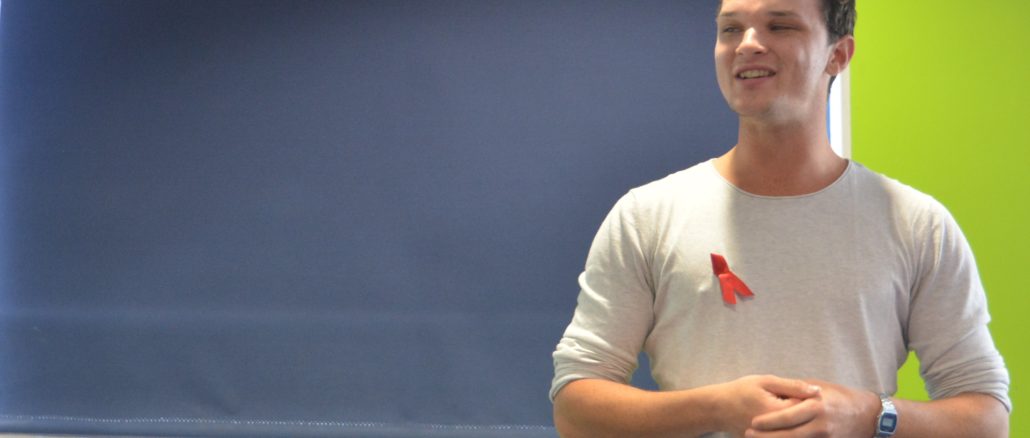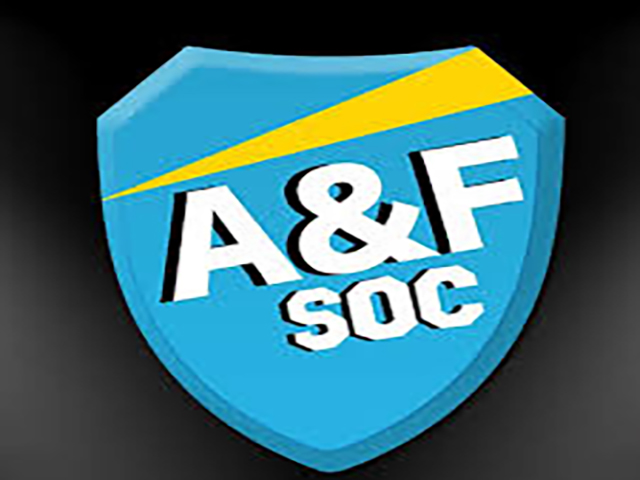
[dropcap]Universities[/dropcap] need to build a framework and provide speakers to tackle the issue of HIV awareness, former DCU student and sexual health activist, Robbie Lawlor told The College View.
Robbie Lawlor (25), who is a former MA Sexuality Studies student, spoke to a group of DCU students during Shift Week, about his HIV diagnosis and the impact that has had on his life.
Lawlor was diagnosed with HIV in October 2012, just months after he graduated UCD.
Through the tale of his experience, Lawlor explained how he used his HIV diagnosis to make a positive change. He created the first peer support network in Ireland for people living with HIV.
He became involved with “Youth Stop AIDS”, a youth led NGO, in 2015. He participated in a speaker tour of over 17 universities in the UK. The tour had someone from the UK, Ireland and an international speaker, from Uganda.
“We all got to tell parts of our stories, and it’s very interesting to get the disparities of living with HIV in higher income countries compared to lower income countries,” Lawlor said.
He arrived back in Ireland and realised that there was “absolutely nothing” of the kind available here.
The College View asked Lawlor why he aims his activism towards university students, “I’m more comfortable talking to young people because I find them more relatable to me and I understand their mentality and I kind of want to break down the barriers that I had as a student.”
He explained that while universities have SHAG weeks, they are only one week a year and HIV must be a consistent campaign.
“The thing about HIV is that you have to be in people’s face. When you’re young, people think that they’re invincible to all of this, I certainly did. It’s the whole mentality of it won’t happen to me”.
Throughout the UK speaker tour, students were provided with the tools to help support the “Missing Medicines” campaign, a push for global access to HIV medicine.
“We gave them the tools, whether it was to sign a petition, talking to their friends, or a bit more hardcore activism,” Lawlor said.
In relation to Irish universities, Lawlor stressed that “young people can be the best activists, it’s just giving them the tools for how to do that. We just need to build a framework and say this is how we can do it, and give speaker tours like today but not with myself, with women, drug users living with HIV, I think that could be the most powerful way.”
498 people were diagnosed with HIV in Ireland in 2015, a 25 per cent rise from 2014’s figure of 377. Globally, there are currently 34 million people living with the chronic disease.
Lawlor completed a four-year undergraduate course in Zoology in UCD and built up savings throughout his time in college to fund his travels to Australia to pursue a career working with animals. However, his diagnosis prevented him from receiving a residency visa.
Following his diagnosis, Lawlor underwent trial and error of various HIV drugs.
Nothing prepared him for what he felt after taking the first pill at 10pm one night, he told the DCU students. “The next morning was possibly the worst day, I felt like I was hit by a bus. It was like the worst hangover times a million. It was like a sludging mist in my brain where I could barely talk, I was slurring my words, I was uncoordinated, lifeless essentially,” he explained.
He was put on a new series of drugs, which work effectively in his system, without symptoms.
Lawlor is set to begin a nine month internship working with GLEN (Gay, Lesbian Equality Network) soon.
Hayley Halpin
Image credit: Hayley Halpin




Leave a Reply